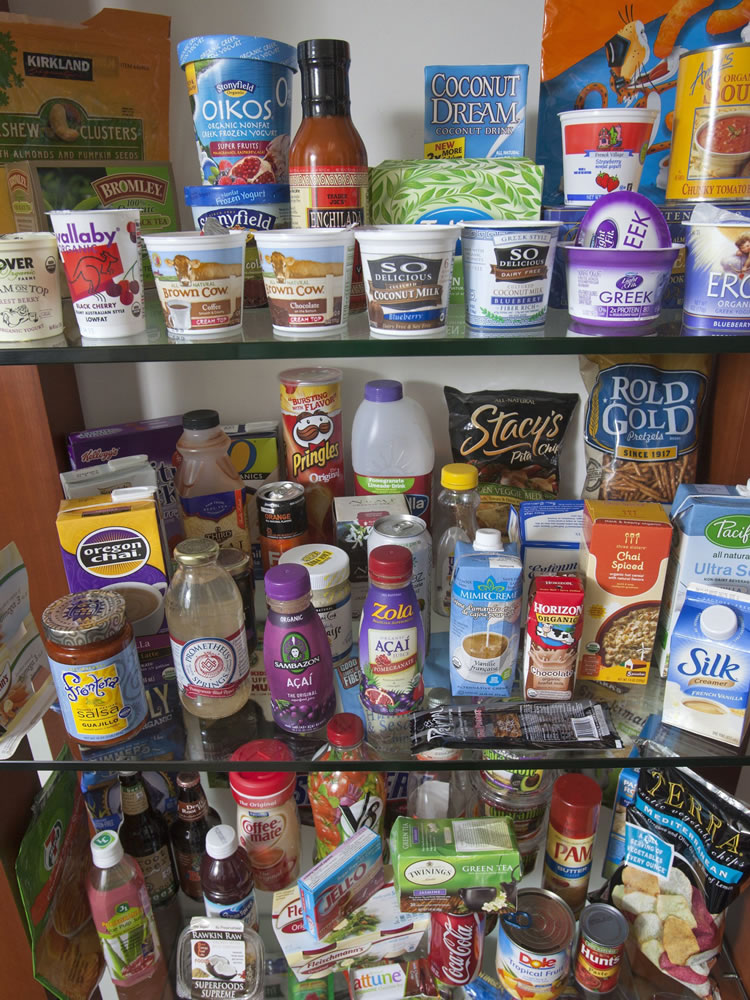SAN JOSE, Calif. — The Bay Area has always been considered food heaven. And now it is home to the nation’s Food Court.
Dozens of class-action lawsuits have piled up on the plates of Northern California’s federal judges targeting the food industry for misleading the public in labeling on everything from yogurt to potato chips — fueled by hungry lawyers and consumers with heartburn from browsing the grocery aisles.
Part of a nationwide legal strategy to change the industry’s marketing ways, the same lawyers who took on Big Tobacco have taken on Big Food in California and about a half-dozen other states. Whether they make claims against Hershey’s for hyping the healthy ingredients of its dark chocolates or go after Bumble Bee tuna for touting its omega-3s, the lawsuits primarily assert that food makers bamboozle the public with labels about the overall health benefits or downsides of their goods.
The Bay Area, with its health-conscious, foodie culture and liberal judiciary, is ground zero for this legal food fight. Hundreds of millions of dollars could be on the line if the cases succeed. Consumers seek millions of dollars in damages in each case and orders to force food companies to redo labels on many products, a costly prospect for an industry that considers the legal claims a misguided, lawyer-driven feeding frenzy to pry settlements and legal fees from their profits.
For shoppers such as Nancy Lanovaz, a Los Gatos woman who has sued Twinings Tea arguing that its labels carry false claims about antioxidant benefits, the cases are a simple recipe to force food manufacturers to be honest about the contents of their products.
“If a company chooses to mislead the public, they should be held accountable,” she said. “I feel like I’m an average shopper. I just don’t like dishonesty.”
The lawsuits, not surprisingly, have given the $900 billion-a-year food industry indigestion. Companies ranging from Procter & Gamble to Ben & Jerry’s to ConAgra have joined forces and assembled a legal team to fight lawsuits they say are “hypertechnical” assertions cooked up by plaintiffs’ lawyers looking to cash in.
Indeed, the lawsuits are cookie-cutter complaints, identical in form except for the specifics of the products involved. They do not claim any health injury, but instead argue that many consumers would not buy those Doritos or Ocean Spray juices if they weren’t deceived.
“Pour in the complaint and out comes a complaint,” said William Stern, a San Francisco lawyer who is helping lead the industry’s courtroom defense. “They all sound the same. And some of these are just laughable.”
Thus far, however, the Bay Area’s federal judges have not laughed them out of court, rejecting the industry’s efforts to get the suits dismissed at early stages. At the same time, the judges clearly are struggling to determine whether there truly is any substance to the labeling claims and who might be in the right.
“Both parties appear to agree this case is a David-vs.-Goliath battle,” San Jose U.S. Magistrate Judge Paul Grewal wrote in one recent case against Nestle. “Where they disagree is which party is the Goliath and which is the David.”
San Jose lawyer Pierce Gore, who has filed most of the lawsuits in the Bay Area, certainly believes his side is the underdog taking on the powerful food industry. He maintains the misleading food packaging violates California’s strict consumer protection laws.
In his corner office, he has stacked all the food items he’s targeted on shelves along one wall that he calls his “product wall of shame.” Everything from a bag of Cheetos to Chobani yogurt is lined up neatly.
Just last week, he sued the makers of Rold Gold pretzels over their “fat free,” “low fat,” and “All Natural” labels. As with the other lawsuits, the pretzel case focuses on the healthy claims in bold on the front of packaging, while unhealthy ingredients, such as the high sodium levels, are buried in fine print on the back — allegedly in violation of both California law and federal food packaging regulations.
“You don’t have to lie to be profitable,” Gore said. “This is much larger than tobacco. Not everybody smokes. But everybody eats.”
Some legal experts, such as John Banzhaf, a Georgetown University law professor who favors the lawsuits, believe the claims are a logical outgrowth of suits that target the industry for contributing to the nation’s obesity problem.
“People are concerned about what they are eating . and want to make sure what they are getting contains what they want,” he said. “One of the ways to get there is through lawsuits.”



